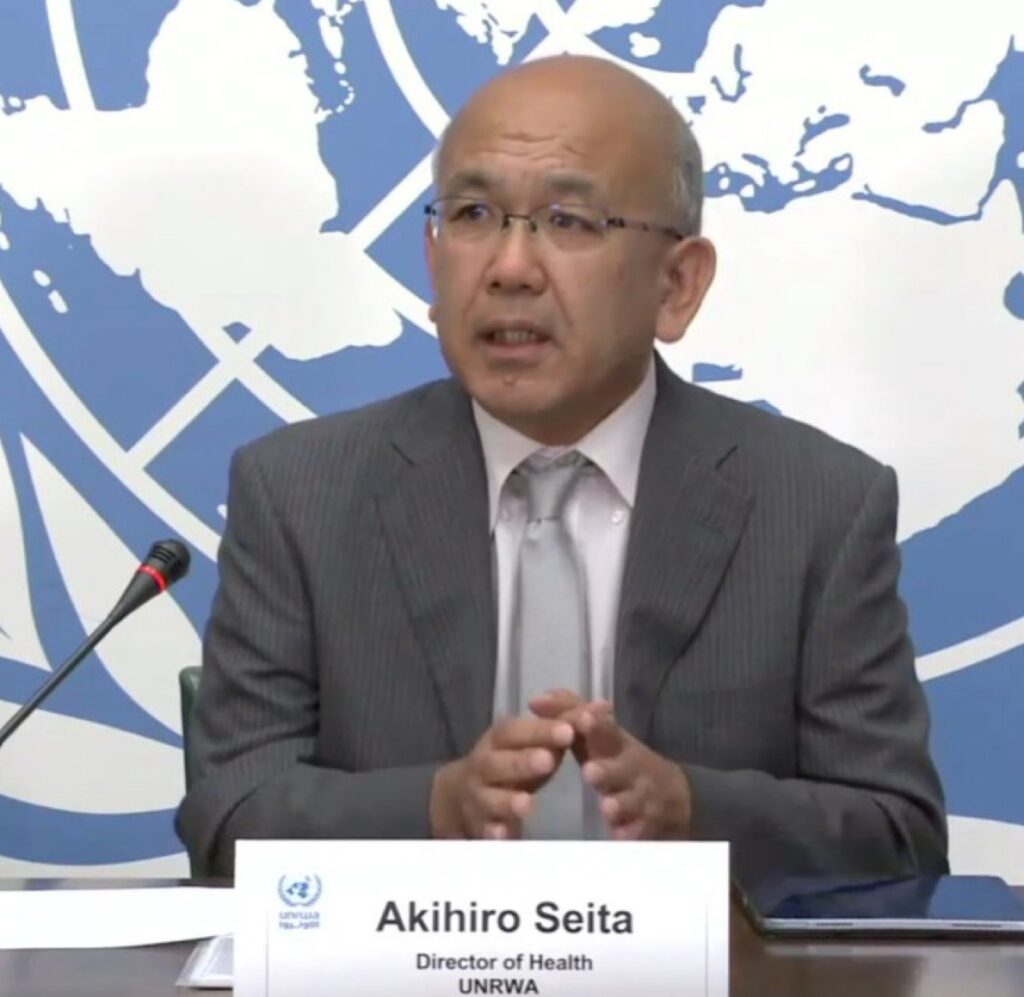
- ARAB NEWS
- 01 Aug 2025

TOKYO: Dr. SEITA Akihiro will be awarded the 31st Yomiuri International Cooperation Prize for his 30 years of providing health care for people in the Middle East, especially Palestinian refugees, through the World Health Organization and other groups, the Yomiuri newspaper reported.
The award ceremony will be held on November 26 in Tokyo. Seita will also receive ¥5 million at the ceremony.
Seita, 63, spent 15 years at the WHO working on measures against infectious diseases, including tuberculosis and AIDS, in 22 countries and regions, including Somalia and Afghanistan.
Since 2010, he has served as the Director of Health at the United Nations Relief and Works Agency for Palestine Refugees in the Near East (UNRWA), managing health care for about 5.9 million refugees, mainly in Gaza.
Many of the refugees have lost their family members or friends, while trying to escape the damage caused by Israeli attacks. Many are also suffering from injuries or illnesses and enduring hunger and cold.
Seita has been to Gaza three times since fighting started there last year and has witnessed what he calls the “harsh reality of the battlefield”.
He led a polio vaccination campaign in Gaza during a brief pause in September after polio virus infections were confirmed in the territory, which had been polio-free for the previous 25 years. Seita said the spread of the disease was a “man-made disaster” caused by war.
“It could have been prevented if the water and sewage systems had not been destroyed,” he said.
Seita oversees around 3,300 UNRWA medical staff and says that “poverty lies behind the health problems” he encounters. UNRWA has been forced to close half of its 25 clinics in Lebanon, where refugees have been once again exposed to the fires of war. The situation in Gaza is even worse. UNRWA, he says, is the last lifeline for the refugees.
“Many of the 22 clinics that UNRWA operates have been destroyed or closed, and only three of them manage to be functional,” Seita told the Yomiuri. “There have been delays in the delivery of supplies due to security restrictions imposed by Israel, resulting in severe shortages of medical supplies, including insulin.”
Seita said his refugee staff are trapped in a “land of despair” because they cannot leave Gaza freely. When medical supplies run out, he said some staff members cannot control their emotions and burst into tears.
Seita integrated the points of contact for outpatients and also set up a family health team comprised of family doctors, nurses and midwives. He also introduced electronic medical records to make it easier to continue treatment at evacuation facilities, as well as expanding a handbook system based on Japan’s Maternal and Child Health Handbook.
The Yomiuri International Cooperation Prize was established in 1994 to commemorate the 120th anniversary of The Yomiuri Shimbun. Sadako Ogata, then UN High Commissioner for refugees, was awarded the inaugural prize.